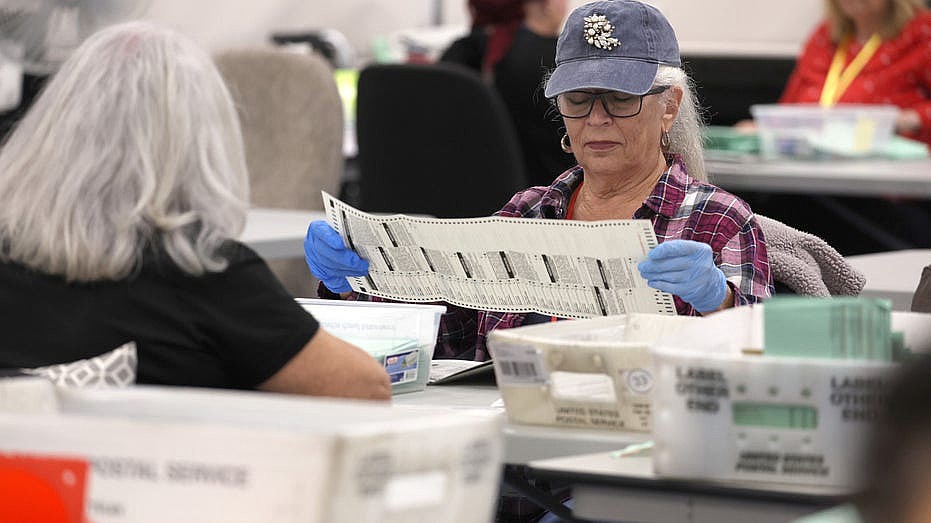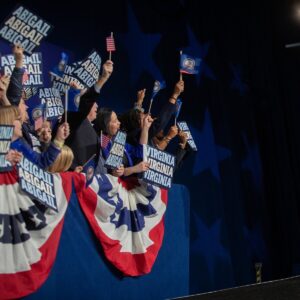RNC gets day at Supreme Court to challenge late-arriving mail ballots
On Monday, the Supreme Court announced it will review a significant lawsuit initiated by the Republican National Committee (RNC) concerning the legality of counting ballots that arrive after Election Day. The case specifically examines Mississippi’s state law, which permits ballots postmarked by Election Day to be counted if they are received within five days following the election. This law was implemented in 2020 during the COVID-19 pandemic when many states adjusted their election policies to accommodate mail-in voting. The RNC contends that allowing these late-arriving ballots undermines public confidence in the electoral process and conflicts with federal law. By taking this case, the Supreme Court has the potential to set a precedent that could affect mail-in voting practices nationwide.
David Becker, the executive director of the Center for Election Innovation & Research, clarified that the Supreme Court’s deliberation will not address the broader legality of mail-in ballots or the ability to cast votes after Election Day. Instead, the focus will be on whether ballots that are mailed on or before Election Day, but arrive late, can be counted. Becker emphasized that Mississippi’s law is part of a broader trend, as over a dozen states, both Republican and Democratic, have similar provisions in place. The RNC’s legal challenge previously succeeded in the conservative U.S. Court of Appeals for the 5th Circuit, prompting Mississippi to escalate the matter to the Supreme Court. The state argues that the definition of “election” pertains to when votes are cast, not when they are received, indicating that late arrivals should not be considered part of the election process.
The implications of the Supreme Court’s ruling could be profound, particularly in tight races where the outcome could hinge on ballots that are delayed due to postal service issues. Becker warned that if the Court upholds the 5th Circuit’s decision, it could lead to a surge of litigation over close elections, potentially destabilizing public trust in electoral outcomes. RNC Chairman Joe Gruters echoed these concerns, asserting that counting mail-in ballots received after Election Day erodes confidence in the electoral system. As the case progresses, it will be closely watched for its potential to reshape the landscape of voting regulations across the country, particularly as the 2024 elections approach.
The
Supreme Court
revealed on Monday it will consider a lawsuit, originally brought by the Republican National Committee, over whether counting ballots that arrive after Election Day is lawful.
The case will examine a state law in solid red Mississippi that allows ballots postmarked by Election Day to be counted if they are received up to five days after the election.
The RNC, which has fought to stop late-arriving ballots over allegations that they undermine trust in the vote counting process, argues the state law conflicts with federal law and is hoping the Supreme Court will ban them nationwide.
David Becker, executive director of the Center for Election Innovation & Research, emphasized that the court would not be weighing in on the legality of mail-in ballots, which are accepted in some form in every state, or whether ballots could be cast after Election Day.
SUPREME COURT HEARS PIVOTAL LOUISIANA REDISTRICTING CASE AHEAD OF 2026 MIDTERMS
“What this case is about is whether a ballot that was cast on or before Election Day, sealed in an envelope, placed in the U.S. Mail and received by a state some days later can be counted if a state law says that that’s okay,” Becker told Fox News Digital.
Mississippi’s rule went into effect in 2020, when many states implemented new emergency election policies over COVID-19. Well over a dozen, both red and blue, accept late mail-in ballots if they are postmarked by
Election Day
.
The RNC sued over the law and secured a win at the conservative U.S. Court of Appeals for the 5th Circuit, leading Mississippi to bring the matter to the Supreme Court. The state argues “election” means voters’ final choice, which occurs when ballots are cast by Election Day. Receipt of ballots that are marked and submitted effectuates the voters’ choice but are “not part of the election itself,” Mississippi told the Supreme Court in a filing. As such, the state argues, federal law does not prohibit short, post-Election Day windows to receive ballots cast on time.
Becker warned of repercussions that could come of the Supreme Court upholding the 5th Circuit’s ruling, saying it could invite a host of new litigation because close races could come down to ballots cast by Election Day that arrive a day or two after the election because of U.S. Postal Service delays.
“We as a society do not want a bunch of ballots coming in the day or two after, delivered late, not because of the voter but because of the Postal Service, and having those ballots being the margin of victory in a close race,” Becker said.
In a statement,
RNC chairman
Joe Gruters echoed broader sentiments of election security hawks who have taken issue with late-arriving ballots.
“Allowing states to count large numbers of mail-in ballots that are received after Election Day undermines trust and confidence in our elections,” Gruters said.
“Elections must end on Election Day, which is why the RNC led the way in challenging this harmful state law. The RNC has been hard at work litigating this case for nearly two years, and we hope the Supreme Court will affirm the Fifth Circuit’s landmark decision that mail-in ballots received after Election Day cannot be counted.”
Eric
Eric is a seasoned journalist covering US Politics news.


